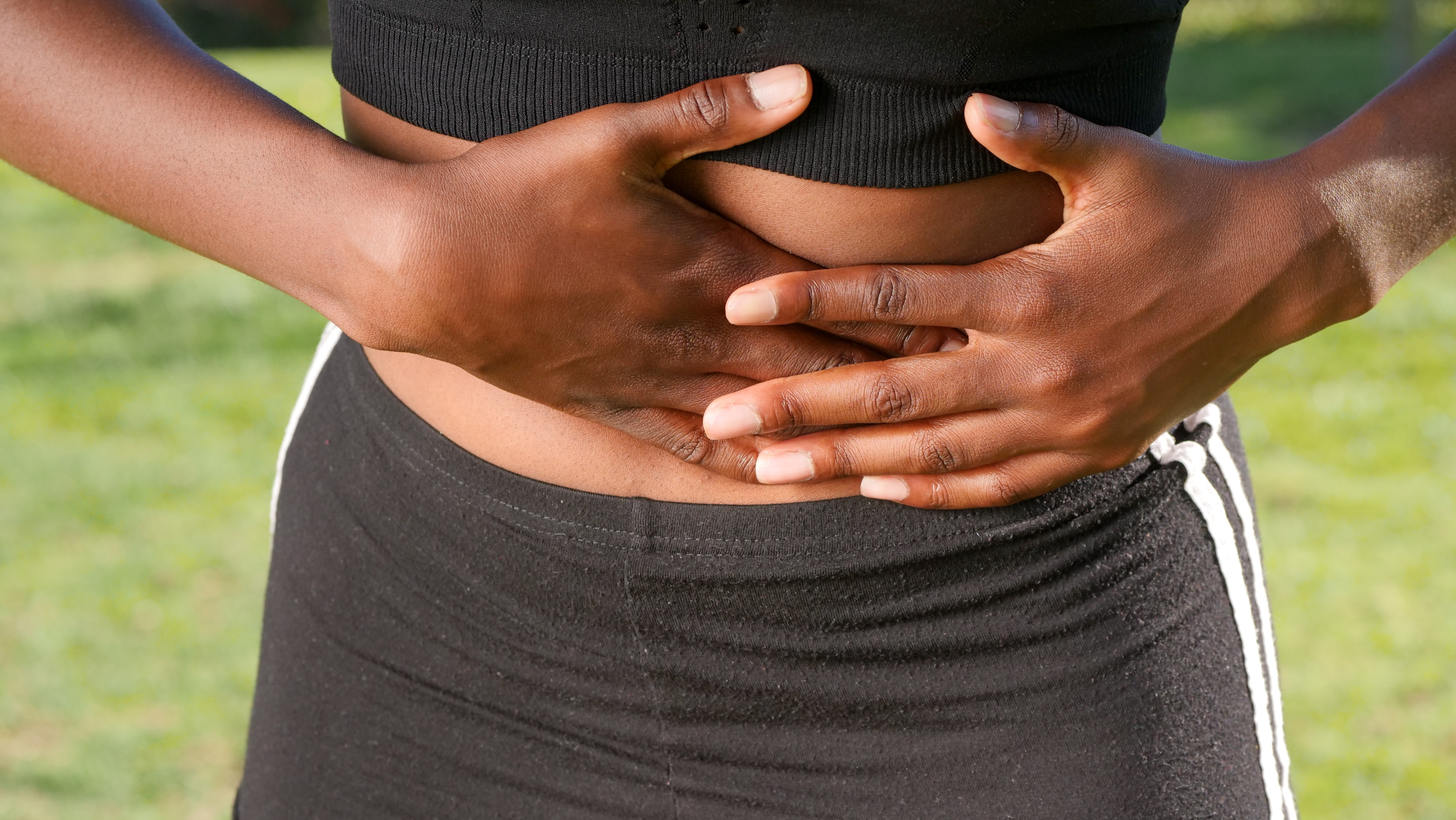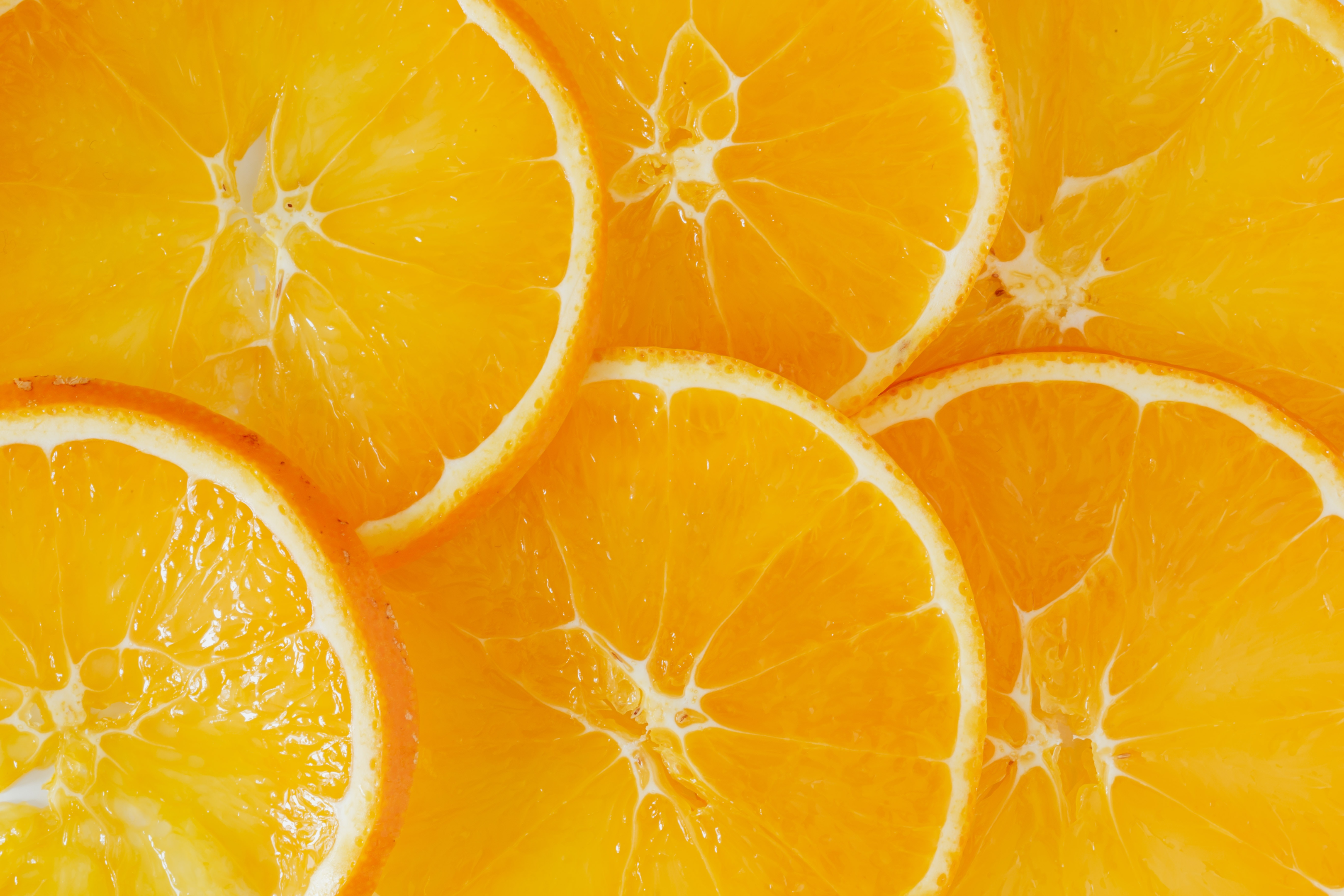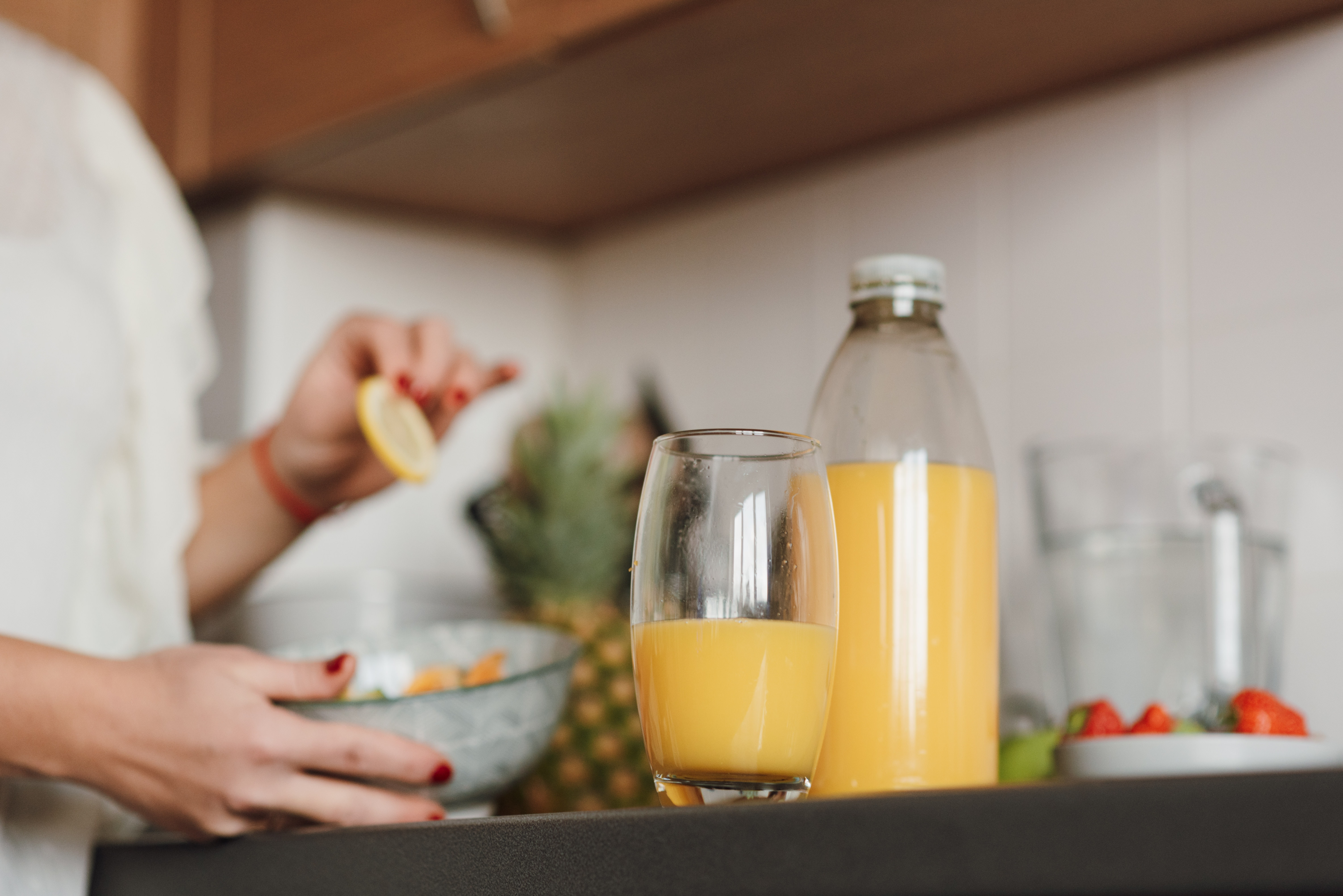Digestive problems like chronic constipation can be a hassle, and between being clogged up and having it lead to other digestive tract problems like IBS (Irritable Bowel Syndrome), a quick fix is what every constipated-individual needs in their life.

Luckily, there are a lot of home remedies you can try out, and in that matter, We've seen Citrus fruits, particularly orange juice, work well.
The chemical composition, particularly its high dietary fiber content and electrolytes, can help you unclog yourself, and have more regular, fulfilling bowel movements.
But before you start rigorously chugging orange juice down your system, it’s important to know some key factors when it comes to orange juice and constipation.
These include knowing how constipation works, how orange juice weighs in, how it makes you poop, and how often (and when) you should be drinking it.
So to save you the hassle of finding answers to these questions, this guide will give you insightful, thought-provoking answers to you on a plate.
Sounds great, right?
Well, that’s just how things at Gistive are!
Table of Contents
Quick Background on Constipation
Constipation is something that most of us experience at least once in our lives. It can be a real pain in the… Well, you know where. But did you know that constipation can be a symptom of a more serious underlying health issue?
It’s true! While constipation is often caused by things like diet, lack of exercise, and even stress, it can also be a sign of conditions like thyroid disease, irritable bowel syndrome, or even colon cancer.
Here are some key symptoms of constipation that you need to look out for its identification:
-
Hard and dry stools
-
Irregular bowel movement with cramps and abdominal pain
-
The feeling of not going fully even after pooping
-
Fatigues
-
Lethargy
-
Decrease appetite
The key to staying healthy is to know what’s normal for you and to seek medical attention if you notice any changes in your bowel movements.
So, the next time you're feeling backed up, don't just reach for the store-bought laxatives that do more harm than good. If it's serious, attend medical help, If not, read this guide till the end, and know more about how you can drink orange juice and get rid of it for good.
Orange Juice and Gut Health - Where Do They Intersect?
Orange juice is not only a refreshing drink on a hot summer day, but it can also have a positive impact on our gut health. The vitamin C found in orange juice can aid our digestive system by stimulating the production of digestive enzymes.
Additionally, the natural sugars found in oranges can act as prebiotics which helps to promote the growth of healthy bacteria in our gut.
However, it is important to note that consuming too much orange juice may lead to issues such as bloating and diarrhea due to its high acidity and sugar content.
If you’re riddled with constipation and other digestive ailments like IBS and IBD, home remedies typically made with fruit juices, like orange juice and apple juice, can help alleviate the serious symptoms.
We’ve covered, in the next section, how orange juice directly helps you poop more, and get rid of constipation, so make sure to read over that as well!
Why Does Orange Juice Make You Poop?
So let’s get down to business.
Oranges, being among the most famous fruits in the world, have a lot of vitamins, antioxidants, and dietary fiber types that help them retain and enrich gut health, specifically the gut microbiota.
Though, their health benefits go beyond just digestive health, as these plump fruits can decrease hypertension, preserve the heart, and boost your immunity.
That being said, here are some reasons why orange juice makes you poop.
Soluble Fiber
A small, peeled orange has enough soluble fiber that half a cup of cooked asparagus has, and if that doesn't tell you how healthy this fruit is for your gut, we're not sure what will.
Soluble fiber, as the name suggests, is the type of fiber that blends in with water to create a viscous, sticky substance. This, in turn, delays digestion, letting the intestines absorb more nutrients and making your stool bulkier, and easier to pass.
Take it from us. Squeeze yourself a glass of orange, and start being more regular in the bathroom department.
Insoluble Fiber
Constipation isn’t a pleasant feeling, and sometimes, the old advice of simply drinking more water isn't enough to ease the discomfort. That's where the power of insoluble fiber comes in.
Oranges are a great source of this type of fiber, which helps to move things along in your digestive system. As it passes through, insoluble fiber bulks up the stool and makes it easier to pass.
This process helps to prevent constipation and promotes regular bowel movements. This use of insoluble fiber is the reason why doctors and health professionals recommend having a good intake of dietary fiber in the form of a balanced diet.
High Electrolytes/Water Content
There's a lot of research that backs up the claims of high water content and electrolytes in this citrus fruit curing constipation and promoting regularity in bowels, and oranges are full of both these things.
Drinking orange juice is way more beneficial than drinking water alone, though we still advise drinking at least 8 glasses a day.
Electrolytes in oranges, such as potassium and magnesium, help to regulate muscle contractions in the intestinal walls, allowing for easier passage of stool.
These juicy citrus fruits, which include oranges, lemons, and others, have a high water content, which helps you soften your stools after drinking juice.
Vitamin C
Vitamin C helps to stimulate the digestive enzymes that break down your food, making it easier for your body to absorb nutrients and eliminate waste. A single cup of freshly-squeezed orange juice has up to 125 grams of vitamin C, higher than most citrus fruits that you’ll find.
But that's not all – vitamin C also has a host of other health benefits, like boosting your immune system and promoting collagen production for healthy skin. So grab an orange (or two) and enjoy the sweet benefits of this superfood, all while being more regular in the bathroom.
What Time Should You Be Drinking Orange Juice?
Knowing to drink orange juice is half the battle, but the other half, of knowing when to do so, is pretty much up there with the important details too.
Though knowing when to drink orange juice differs from use case to use case, depending on why you’re drinking it - For constipation-related cases, there’s more of a unanimous decision.
Medically speaking, the best time to drink orange juice for your constipation is 30-90 minutes after eating.
This is the time when the digestive system is almost done with digesting the eaten food and drinking orange juice will help you feel full for longer, and the dietary fiber will help with constipation relief.
On the other hand, on the topic of the worst time to drink orange juice, we highly recommend against orange juice consumption at night. The diuretic composition and electrolytes in orange juice can have a direct impact on your sleep as well as the digestive system.
Store-Bought Or Freshly Squeezed - Which Orange Juice Should You Use?
There's nothing like a glass of fresh orange juice to start your day on the right foot. But did you know that squeezing your oranges is much better than buying store-bought juice?
First of all, store-bought juice often contains added sugars, preservatives, and other additives that you don't want in your morning drink. Not to mention, the process of pasteurization used to make store-bought juice can strip it of important nutrients like vitamin C.
When you squeeze your oranges, you know exactly what's going into your juice and you can ensure it's packed with vital nutrients. Plus, it's always fun to squeeze out orange juice yourself.
Other Fruit Juices To Relieve Constipation
Mother nature gave us oranges as a blessing for our constipated tummies, but they’re not the only blessings you need to be eyeing.
In truth, there are a variety of citrus fruits and natural remedies you can use to get rid of your constipation, provided that it's not medically critical. Here are some fruit juices that we think you should try at least once, on the off chance you're not an orange juice person.
Prune Juice
We’ve talked about prune juice and its digestive effects before, and we’ll say it again.
This fruit juice powerhouse is a natural laxative that can help get things moving in your digestive system. Prunes are high in fiber and contain sorbitol, a sugar alcohol that draws water into the intestines and softens the stool.
This gets your bowels running minutes after drinking, and once incorporated into a healthy routine, can help with symptoms of chronic constipation as well as bloating.
Apple Juice
Apple juice is quite high in fiber, which helps promote regular bowel movements. The natural sugars in apples also have a mild laxative effect, providing gentle relief from bloating and discomfort. Plus, the hydration factor can help soften stool for easier elimination.
However, for better results, make sure to choose 100% pure apple juice, and squeeze it yourself rather than picking up some store-bought version of it.
Pear Juice
Pear juice has a high amount of fiber and sorbitol, which helps to soften stool and increase bowel movement frequency. And the best part? Pear juice can be really tasty, and paired with its health benefits, we think it’s the best choice for your clogged-up digestive system.
So the next time you're feeling clogged up, reach for a glass of sweet, refreshing pear juice and see if it helps your digestive woes.
Lemon Juice
This sour little fruit is packed with vitamin C and citric acid, which can help stimulate your digestive system and get things moving. Just mix a tablespoon or two of lemon juice with warm water and drink it first thing in the morning.
Lemon juice can also promote the growth of good gut bacteria, which is essential for smooth digestion and regularity. So ditch the store-bought laxatives and give lemon juice a chance to work its magic.
Bottom Line
Ultimately, orange juice is a great way to support digestive health and may be helpful if used appropriately. It's rich in dietary fiber, vitamin C, electrolytes, and water--all of which are key to promoting regular bowel movements.
Though, when it comes to constipation, it’s always important to know that visiting your doctor first to see where the problem is coming from.
Eating a balanced diet full of whole foods that are high in fiber content such as fruits and vegetables as well as staying hydrated can also help keep your bowels functioning as they should.
Though, even if you're not a fan of oranges, or don't have access to freshly-squeezed juice, other fruit juices might be beneficial when constipation strikes, as we've mentioned in the guide above.





